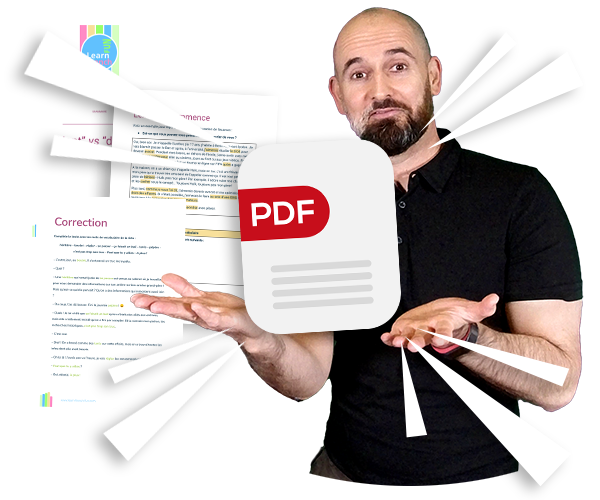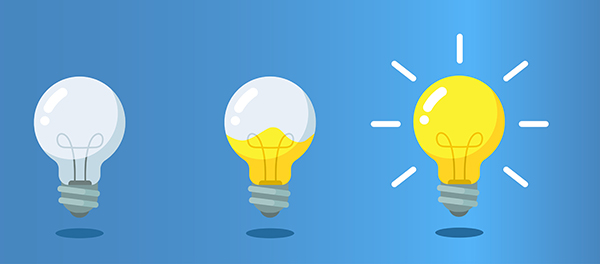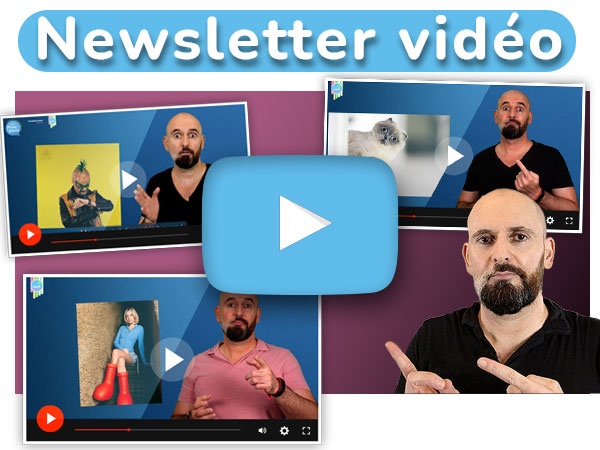So, you’re learning French and you’re getting pretty good at conjugating verbs in the present tense. But what about the future tense, and especially, the futur proche?
If you intend to take the DELF A2, you must master the near future. But don’t worry, we’ll look at it in detail. You can also read our article on the most common questions asked during a French oral exam.
Don’t worry, it’s not as hard as it seems. In fact, there are only a few things you need to know in order to form French future verbs. I’m going to show you how it’s done in this post, so keep reading!
Simple future… near future… Present with future value… Futur antérieur!
Why? Why ? OK, we’ll keep the futur proche (near future) and we’ll watch this a little bit closer.

PDF Bonus
We have prepared a free PDF to help you understand and master the French Futur Proche.
👉 Download it for free
At the end, you will have exercises to practice with the correction. 👍
Conjugation of the French Futur Proche
First of all, the conjugation. How do you conjugate the futur proche? How do you form the conjugation of the futur proche?
This is very easy. We take the verb aller (to go) in the present tense, plus the infinitive of the verb you want to conjugate.
aller + infinitif
And we conjugated the near future!
A little reminder: you still need to know the conjugation of the verb aller!
Je vais, tu vas, il va… OK, so far, so good, nous allons, in general, students are fine.
Vous allez.
OK, and for ils/elles (they) ?
Sometimes you get surprises, even with very good students.
Ils vont, ils vont!
And so for the futur proche. The verb aller + the verb in the infinitive, the verb that you want to conjugate, in fact, we’ll leave it in the infinitive and we made the futur proche!
Nous allons nous coucher (We’re going to bed).
Obviously… Here we have the verb se coucher (to lie down), reflexive verb that complicates the conjugation a little bit more, but not much:
- Because we have the subject: nous (we),
- The verb aller (to go) in the form Nous (we): nous allons (we go).
- And then the pronoun of the pronominal verb (of the reflexive verb).
As it is the form nous, well the pronoun is nous and the infinitive: se coucher. - Nous allons nous coucher (We are going to bed) and this structure with pronominal verbs, reflexive verbs:
Subject + verb aller in the present tense + the pronoun + the infinitive
It’s all the time the same.
So, no need to… NO! It’s the same one. Always the same structure.
I know… in French, you are often told: “yes, but there is…” .
Here, when you conjugate in the futur proche it is always this same structure.
- For a simple verb: subject + aller in the present tense + infinitive.
- Example: Elles vont manger.
- For a pronominal verb: Subject + aller in the present tense + the pronoun that fits the subject (Caution!) + the infinitive.
→ Je vais me coucher (I’m going to bed).
→ Nous allons nous coucher (We are going to bed).
Do you like learning French with videos?
Receive our free video newsletter every Friday in your e-mail box. You will get 3 “Tips & Tricks” on grammar, vocabulary, phonetics or French culture.
👉👉 Sign up now!
| 📌 And always in the description of the video, the Little Bonus PDF (FREE), with exercises, correction, more information, and all the information you see in this video. → Download the Bonus PDF |
The use of the Futur Proche in French
When is the future proche used in French? Because we saw at the very beginning:
- Futur simple,
- futur proche,
- futur antérieur,
- présent à valeur de futur.
4 futures ?!
Why the futur proche ? What for?
1. French futur proche: when you speak
First thing: you have to know that it is a time which is generally used in oral, when you speak.
It is rather a time that is informal. Then it is used to express an action that is close.
2. French futur proche: when the action is close to happening
Second thing: Look at the name: Futur proche! Near future! An action that is close… Clever, that!
They are smart these French people ! 😆

For an action which is in a few moments, in a few minutes, in a few hours, maybe even in a few days. But it’s close to now, it will happen : Futur proche ! Very quickly.
An example:
- J’ai soif, je vais boire. (I am thirsty, I’m going to drink.)
You saw that the action, it was very close. Je vais boire (I’m going to drink). Futur proche !
3. French futur proche: to express something that you want to happen
Third thing: When you want to express a project, something you want to do.
Examples:
- Nous allons nous marier. (we’re getting married)
This is our project… - Elle va venir en vacances à Nice. (She is going to come on vacation to Nice)
What a great project!
To sum up about the near future
So, to summarize:
The futur proche is conjugated with the verb aller (to go) in the present tense, the “classic” present tense that you all know + the infinitive of the verb that you want to conjugate.
The verb “to eat” in the “futur proche”: Je vais manger.
The second thing is a time that is used a lot in the spoken word.
Third thing, it is used to express an action in the future, but a future that is here, now, very, very close.
Fourth, it expresses a project, something you want to do in the future.
✔️ French QUIZ
French Futur Proche
Before leaving, let’s take this little quiz together to see if you understand 😀
Results
#1. Conjugue le verbe "aller" à la forme "ils" :
#2. Quelle est la structure du futur proche ?
#3. Quelle est la forme correcte ?
#4. Quelle est la forme correcte ?
#5. Quelle est la forme correcte ?
📌 Free PDF Bonus:
Do you want to do more exercises on Futur proche in French and have the correction? Have a summary sheet of the lesson?
Then download the free Bonus PDF!
And that’s all for today! If you’re interested in learning more, or want to get started right away, check out our French program. We’ve spent years teaching adults and children the language of love (and hopefully some lessons on how to use it properly).
So go ahead – make your future bright by picking up a few words in the futur proche de la langue française today. Bonne chance !
Share the article to your friends 👍
See you soon 🙂
Articles that might interest you:
- The Imperative in French: How to Conjugate Verbs in Imperative? When do You Have to Use the Imperative?
- The 10 Irregular Verbs in the French Subjunctive Mood
- Depuis, pendant, en, il y a, dans
- All the secrets of the French gerund!
- French verb moods
- How to use the tonic pronouns in French?
- How to use “en” and “y” pronoun in French?
- Difference between DONT and DUQUEL in French
- 10 common French verbs conjugated in the present tense. Beware of traps!
- The Direct Object Complement in French (C.O.D.) and direct complement pronouns (le, la, les…)







3 thoughts on “What is the “futur proche” and when do you have to use it in French?”
Comments are closed.